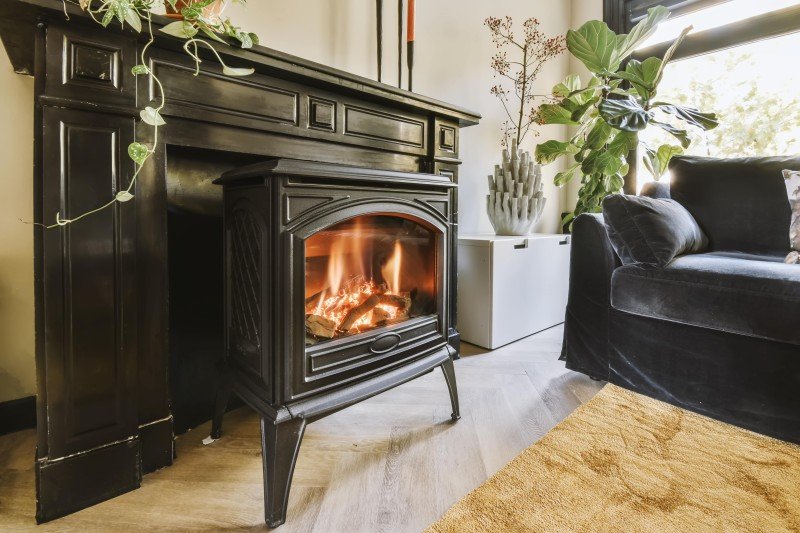
Luxury Fireplaces
Add a review FollowOverview
-
Founded Date March 2, 1954
-
Sectors Information Technology
-
Posted Jobs 0
-
Viewed 6
Company Description
Why Fireplaces And Stoves Could Be Your Next Big Obsession?
The Comprehensive Guide to Fireplaces and Stoves
Fireplaces and stoves have been integral to human civilization for centuries, functioning as a source of heat, light, and convenience. These home appliances are available in different kinds and have developed for many years, accommodating diverse preferences and technological developments. This post supplies a helpful overview of fireplaces and stoves, highlighting their types, advantages, upkeep ideas, and setup considerations.
Kinds of Fireplaces
The world of fireplaces is abundant and differed. Here are the most common types:
-
Wood-Burning Fireplaces:
- Traditional and captivating.
- Needs seasoned wood and regular maintenance.
- Produces an enjoyable scent and crackling sound.
-
Gas Fireplaces:
- Offer benefit and ease of usage.
- Available in vented and vent-free choices.
- More efficient and cleaner than wood-burning options.
-
Electric Fireplaces:
- Provide atmosphere without the need for a chimney.
- User-friendly with push-button control alternatives.
- Can be used as a supplemental heat source.
-
Pellet Stoves:
- Use compressed wood pellets as fuel.
- Highly efficient and eco-friendly.
- Often equipped with thermostats for temperature level control.
-
Ethanol Fireplaces:
- Utilize bioethanol fuel, making them portable.
- Do not need venting, which permits flexible positioning.
- Produce a practical flame with minimal smoke.
-
Outdoor Fireplaces:
- Designed for outdoor settings; can be wood or gas-burning.
- Great for entertaining and enhancing yard aesthetic appeals.
- Typically constructed from stone, brick, or metal.
Benefits of Fireplaces and Stoves
Including a fireplace or range into a home offers various benefits:
- Aesthetic Appeal: Fireplaces work as striking focal points in any room, adding heat and character to home decor.
- Increased Property Value: Homes with functional fireplaces tend to have greater resale values.
- Energy Efficiency: Modern fireplaces and stoves are designed to be more energy-efficient, which can cause decreased heating expenses.
- Backup Heating Source: In case of power blackouts, wood-burning and gas fireplaces can act as essential heating sources.
- Versatile Heating Solutions: Different types of fireplaces accommodate different heating requirements and lifestyles, from relaxing atmosphere to efficient heating.
| Type of Fireplace/Stove | Fuel Source | Efficiency Rating | Upkeep Level |
|---|---|---|---|
| Wood-Burning | Wood | Moderate | High |
| Gas | Natural gas/LP | High | Low |
| Electric | Electrical energy | High | Extremely Low |
| Pellet | Wood pellets | High | Moderate |
| Ethanol | Bioethanol | Moderate | Low |
| Outdoor | Wood or gas | Moderate | Varies |
Upkeep Tips
Proper maintenance extends the life of fireplaces and stoves, ensuring security and efficiency. Here are some vital tips:
-
Regular Cleaning:
- Wood-burning fireplaces ought to be cleaned up after a full season of use to get rid of soot and creosote.
- Gas fireplaces need routine evaluation of the burner and vents.
-
Routine Inspections:
- Have chimney sweeps perform annual inspections to determine obstructions or structural damage.
- Inspect the seals and gaskets on gas units to prevent leaks.
-
Fire Safety:
- Install smoke and carbon monoxide detectors in homes with fireplaces or stoves.
- Keep a fire extinguisher near the fireplace or stove for emergencies.
-
Usage Quality Fuel:
- For wood-burning systems, constantly use seasoned wood; avoid dealt with or painted wood.
- When using pellets, ensure they are stored correctly to avoid wetness absorption.
-
Manage Airflow:
- Keep vents and ducts clear to promote effective ventilation and airflow.
- Think about utilizing glass doors or screens to reduce particles and ash in the home.
Setup Considerations
Setting up a Contemporary Fireplace Buy or stove needs careful factor to consider of several factors:
-
Location:
- Choose a place that permits correct clearance and ventilation.
- Consider the design of your home and the benefit of natural heat distribution.
-
Building Regulations and Permits:
- Check regional regulations concerning installations and needed licenses.
- Engage a professional to ensure compliance with security standards.
-
Fuel Type:
- Evaluate your fuel alternatives based upon accessibility, cost, and ecological impact.
- If choosing gas, guarantee existing gas lines can accommodate the brand-new appliance.
-
Ventilation:
- Proper venting is crucial for security and performance, specifically for gas and wood-burning units.
- Consult an expert to figure out the very best venting solution.
-
Aesthetic Consideration:
- Select a design that matches your home’s interior.
- Think about mantels, surround products, and colors that match your decoration.
FAQs
What is the very best type of fireplace for heating?
Gas fireplaces are typically more efficient for heating, while wood-burning fireplaces provide more ambient warmth.
How frequently should I clean my fireplace?
Wood-burning fireplaces ought to be cleaned up at least when a year, while gas fireplaces require less regular attention depending upon use.
Can I install a fireplace myself?
While some property owners may attempt DIY installation, it is suggested to employ a professional to make sure safety and compliance with building regulations.
Are electric fireplaces efficient?
Yes, electric fireplaces are very efficient and can act as reliable extra heating sources, specifically in smaller spaces.
What is the life-span of a fireplace?
The lifespan of a fireplace differs depending on the material, type, and upkeep; nevertheless, a well-kept wood-burning fireplace can last over 30 years.
Fireplaces and stoves stay timeless functions in homes, using warmth and ambiance. Comprehending the various types, benefits, and upkeep requirements can help property owners make informed decisions about setup and care. With cautious preparation and routine upkeep, these appliances can boost both the convenience and value of a home for several years to come.


